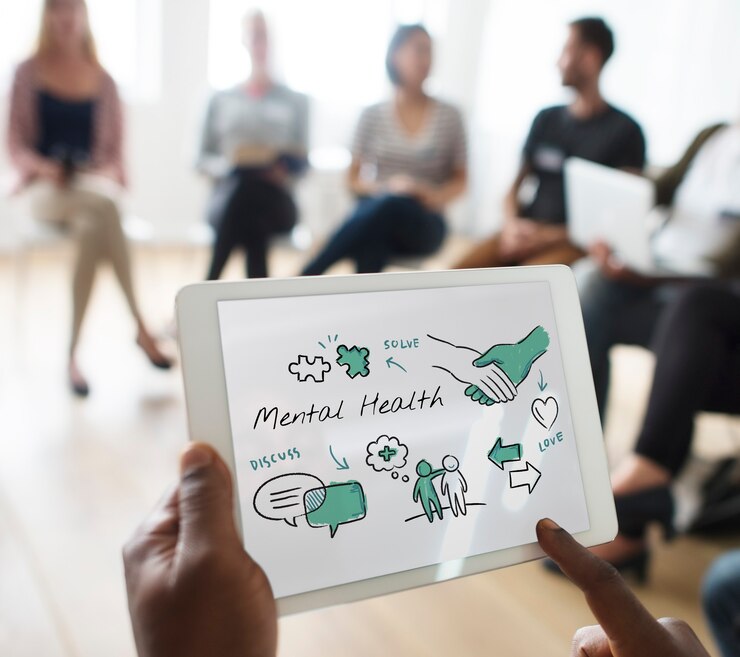In today’s fast-paced world, mental health has become a crucial focus for millions of people. Whether it’s the stress of daily life, overwhelming responsibilities, or personal challenges, maintaining good mental health is essential for living a fulfilling and balanced life. Mental health improvement isn’t just about curing a condition; it’s about building resilience, cultivating positivity, and embracing self-awareness in your day-to-day life.
In this article, we will dive deep into effective methods for improving mental health, sharing techniques, strategies, and a remarkable personal story of transformation. Along the way, we’ll explore how even small actions can lead to significant changes in your emotional well-being.
What is Mental Health?

Mental health refers to the state of our emotional, psychological, and social well-being. It influences how we think, feel, and behave in everyday life, affecting our ability to handle stress, relate to others, and make decisions.
Unfortunately, mental health challenges are common, but they often go unspoken due to stigma. Anxiety, depression, and chronic stress can significantly impact one’s life, making it hard to function and find joy in simple things. However, mental health is something we can work on, just like physical health, and improvement is always possible.
Your mental health matters. Take the first step with Mind is Medicine APP!
The Story of Maya: A Journey to Mental Health Improvement

Maya was an ambitious young woman who seemed to have it all. She had a successful career, a close-knit group of friends, and a supportive family. But despite the appearance of having it all together, Maya struggled with her mental health for years. Underneath her outward confidence was a person battling anxiety, self-doubt, and overwhelming stress.
Maya’s workdays were filled with pressure, constant deadlines, and a nagging feeling that she wasn’t good enough. No matter how many goals she achieved, her mind was always consumed by thoughts of inadequacy and fear of failure. At night, sleep was elusive, and her mind raced with anxious thoughts. On weekends, Maya felt drained, emotionally numb, and detached from the things that once brought her joy.
One day, after a particularly stressful period at work, Maya broke down. She realized that she could no longer ignore the signals her body and mind had been sending for so long. Something had to change.
Maya took the bold step of seeking help and learning more about mental health improvement. She read articles, consulted professionals, and even tried the Mind is Medicine APP, which provided tools and techniques to start improving her mental well-being. She began using daily mindfulness exercises, breathing techniques, and cognitive-behavioral strategies that helped her take control of her emotions and break free from negative thought patterns.
Slowly but surely, Maya’s mental health began to improve. She learned to set boundaries at work, practice self-compassion, and reframe her thoughts when anxiety crept in. Maya’s journey was not without its ups and downs, but over time, she rediscovered joy, inner peace, and a stronger sense of self-worth.
Proven Strategies for Mental Health Improvement

Just like Maya, we all have the ability to improve our mental health. Whether you’re dealing with stress, anxiety, depression, or simply seeking to boost your emotional resilience, there are strategies and techniques that can help you achieve better mental health. Below are some proven methods to guide you on your journey.
1. Mindfulness and Meditation:
Mindfulness is a powerful practice that involves staying present in the moment without judgment. By focusing your attention on the present, mindfulness helps reduce stress, anxiety, and negative thinking patterns.
Meditation, a related practice, involves deep breathing and focus, often on your breath or a specific mantra, to quiet the mind. Both mindfulness and meditation can help reduce cortisol levels (the stress hormone) and promote a sense of calm and well-being.
How to Practice Mindfulness:
- Set aside 10-15 minutes each day for mindfulness meditation.
- Sit in a quiet, comfortable place.
- Close your eyes, take deep breaths, and bring your attention to your breath.
- If your mind wanders, gently bring your attention back to your breath.
Regular mindfulness practice can lead to long-term mental health improvement by helping you stay grounded, manage stress, and develop a more positive outlook on life.
2. Cognitive Behavioral Therapy (CBT):
Cognitive Behavioral Therapy (CBT) is a well-known psychological approach that helps individuals identify and change negative thought patterns and behaviors. By recognizing automatic thoughts—those quick, unhelpful thoughts that occur in reaction to situations—CBT helps reframe them into more constructive, realistic ones.
For example, instead of thinking, “I’ll never be good enough,” CBT teaches you to challenge this belief and replace it with, “I am capable and doing my best, and that’s enough.”
Want to learn how to reframe negative thoughts? Start your journey with the Mind is Medicine APP!
3. Physical Exercise:
Exercise is not just for physical health—it’s a powerful tool for improving mental health as well. Regular physical activity boosts the production of endorphins, the brain’s natural mood elevators. Exercise also helps reduce stress, anxiety, and symptoms of depression.
You don’t need to engage in intense workouts to feel the mental benefits. Even a 30-minute walk, yoga session, or a short workout can help lift your mood and reduce stress levels.
4. Journaling for Mental Clarity:
Writing down your thoughts and feelings can be incredibly therapeutic. Journaling allows you to process your emotions, gain clarity, and identify patterns in your thought processes. This practice is particularly helpful for those dealing with anxiety or overwhelming thoughts.
By regularly journaling, you create a safe space to reflect on your mental state, track your progress, and release negative emotions.
5. Cultivating Social Connections:
Human beings are inherently social creatures. Maintaining meaningful connections with others is a key component of good mental health. Isolation can exacerbate feelings of loneliness, depression, and anxiety, while building strong social connections can help you feel supported, understood, and valued.
Make time to connect with friends, family, or even join support groups where you can talk openly about your experiences and learn from others. Being around supportive people can improve your mood and mental well-being.
Feeling isolated? Let the Mind is Medicine APP guide you to better mental health!
The Importance of Self-Care

In the hustle and bustle of life, self-care often takes a backseat. But self-care is vital for mental health improvement. Taking time to nurture yourself allows you to recharge, reflect, and maintain emotional balance.
Self-care doesn’t need to be elaborate—it can be as simple as setting boundaries, saying no when needed, and ensuring that you take time for activities that bring you joy, like reading, walking in nature, or taking a warm bath.
Some self-care tips include:
- Prioritizing sleep: Aim for 7-8 hours of restful sleep every night.
- Practicing gratitude: Each day, list three things you’re grateful for.
- Engaging in hobbies: Make time for activities you love, whether it’s painting, cooking, or gardening.
How Technology Can Support Mental Health Improvement

With today’s technological advancements, we have more tools than ever to support our mental health. Apps like Mind is Medicine offer guided meditations, mindfulness exercises, and other helpful tools to manage stress, anxiety, and emotional challenges.
These digital tools are designed to empower you to take control of your mental health on your own terms. Whether it’s through tracking your moods, practicing daily affirmations, or engaging in somatic awareness, apps like Mind is Medicine can make mental health support accessible and convenient for everyone.
Take the first step toward mental clarity and peace. Download the Mind is Medicine APP today!
Conclusion: Your Mental Health Journey Starts Now

Improving your mental health is a continuous process, but it’s a journey worth taking. By incorporating practices like mindfulness, exercise, journaling, and self-care into your daily routine, you can make significant strides in boosting your emotional and psychological well-being.
Remember, just like Maya’s story, everyone’s mental health journey is unique. There will be challenges, but with the right tools and strategies, you can regain control of your thoughts, reduce stress, and live a more balanced life.



